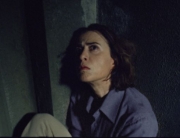![]() Argentina, 1985 dramatizes the most important trial in Argentinian history, when the leaders of the right-wing military dictatorship that ruled the country from 1976–1983 were made to answer for their crimes. That it even happened at all was a victory in itself—the film depicts how the lead prosecutor, Julio Strassera (Ricardo Darín), struggled to get the trial off the ground.
Argentina, 1985 dramatizes the most important trial in Argentinian history, when the leaders of the right-wing military dictatorship that ruled the country from 1976–1983 were made to answer for their crimes. That it even happened at all was a victory in itself—the film depicts how the lead prosecutor, Julio Strassera (Ricardo Darín), struggled to get the trial off the ground.
A film about South American politics from 40 years ago could easily be a slog to sit through and get bogged down in endless details, but Argentina, 1985 is tightly structured and informative, and first and foremost, it’s cinematic. There’s an atmosphere of uneasiness and menace quickly established, bringing viewers into its world.
Strassera becomes a hero in how he leads the prosecution, but he is an unremarkable man, living a quiet family life. In the early going, the movie has shades of The Insider (1999), the great Michael Mann movie where Russell Crowe plays a former Big Tobacco executive who blows the whistle. He’s just an average guy taking on a powerful evil force, and he opens his quiet, unassuming family up to threats. It also brings to mind those political-legal thrillers that George Clooney used to make, Syriana, Good Night and Good Luck, and so on.
It plays out during late 1984 and early 1985, when the military isn’t in power anymore, but Strassera is paranoid of bringing the dictators to trial, even though they’re out of office, because they have a kind of shadow power. Additionally, plenty of those who felt themselves to be upstanding citizens did little if anything to oppose the military junta. Confronting the former rulers head-on in a trial means the larger public having to reckon with itself, something that most haven’t the stomach for. Strassera spends a great deal of time and energy being caught in the middle, and Darín’s performance oozes the kind of weltschmerz that being tasked with mediating middle-class complicity in a national tragedy would bring about.
There’s a telling scene where Strassera is talking to a friend about assembling his legal team, and they go down a list of candidates. As they discuss the names, they find that just about all of them have different connections to the dictatorship in various ways (often through family or the church). Their tone isn’t outraged or surprised but kind of resigned yet resolved to overcome it—sure there are collaborators everywhere, but they still are going to do their best to seek whatever modest justice they can get. Strassera eventually builds a legal team mostly of young, inexperienced people, mainly because they haven’t been around long enough to be compromised by the pervasive corruption.
The 2020s is a time that’s up for grabs politically throughout the world, and we don’t quite know what it’s going to be yet (though it feels like it could be the final descent into global fascism). But it doesn’t have to be. So, dramatizations of political events from the 1980s feel very close to us and are a great window through which to see our own present. That is one reason Argentina, 1985 is among the best movies of the year.

















Leave A Comment